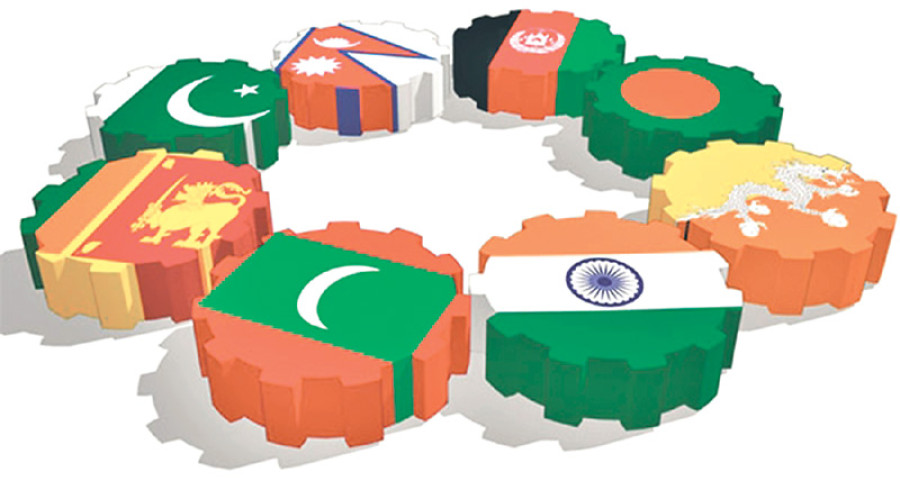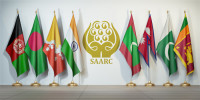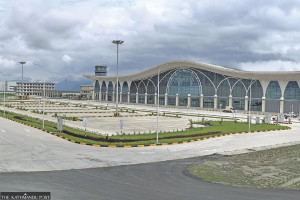Opinion
Saarc in jeopardy
The 19th summit of the South Asian Association for Regional Cooperation (Saarc), scheduled to be held in Islamabad from November 9-10, was scuttled following the deadliest militant attack on security forces in Uri, Kashmir in two decades.
Niranjan Mani Dixit
The 19th summit of the South Asian Association for Regional Cooperation (Saarc), scheduled to be held in Islamabad from November 9-10, was scuttled following the deadliest militant attack on security forces in Uri, Kashmir in two decades. After India said that it would not be participating in the conference, it was automatically postponed. Bangladesh, Bhutan, Afghanistan and Sri Lanka followed India’s lead and said they too would not be coming, perhaps in a bid to alienate Pakistan in regional and global forums.
Violence in different forms has been the root cause behind growing tensions in the region, which should be stopped for lasting peace and socio-economic development. Nepal, the current Saarc Chair, should mediate and defuse tensions, expedite consultations with member states and reschedule the summit at some other place than the countries at loggerheads with each other.
Formed in 1985, Saarc groups Afghanistan, Bangladesh, Bhutan, India, Maldives, Nepal, Pakistan and Sri Lanka. It has been criticised for its dismal performance. Saarc commenced with the foundational objectives of accelerating economic growth and social progress and contributing to mutual trust and understanding in the region, but it is a long way from fulfilling them. An effective monitoring and evaluation mechanism is not yet in place. The South Asian Preferential Trading Arrangement 1993 (Sapta) had no significant impact on intra-regional trade. Likewise, the South Asian Free Trade Area 2004 (Safta) has not been able to improve trade relations among Saarc members. Saarc summit declarations routinely pledge to eradicate poverty, but the deadline is being constantly pushed back.
More observers than members
Analysts have claimed that Saarc is dysfunctional and almost dead due to escalating tensions between India and Pakistan, both nuclear power nations, over the Kashmir issue. Subordination and tendencies to bully and micromanage domestic affairs are other problems. A few vital initiatives can be launched to reform and revitalise Saarc and pull it out of its dormant state.
First, the lopsided structure of Saarc where there are more observer nations (nine) than members (eight) is rare in multilateral diplomacy. The nine observers are China, the US, Myanmar, Iran, Japan, South Korea, Australia, Mauritius and the European Union. For optimal effectiveness, Saarc should consider including at least Myanmar, China, Thailand, Malaysia and Singapore as member states. China, which adjoins Nepal on the north, has been offered only an observer status even though it has been trying to obtain full membership. Afghanistan, which straddles Central and South Asia, is already a member state. Myanmar, which borders China and India, has been attempting to become a full member. The UN needs to be included as an observer.
India and China are economic powerhouses, but many Saarc plans have had to be dumped for lack of funds. Getting China on board as a member state will not only bring massive resources and technology for the development of the entire group but also contribute to a system of checks and balances and synergy.
Realism vs idealism
Second, India and Pakistan, which were partitioned in 1947 following independence from Britain, may want to explore the possibility of reunification à la East and West Germany. After all, they were one country during the time of the British empire. Furthermore, there has been significant integration of Hindu and Muslim cultures across India and regionally and globally in various ways in the modern age.
It is an irrefutable fact that human beings want to live in a loving, caring and peaceful environment and work together to attain long-lasting peace, prosperity and happiness. Free of overriding geo-politics and egotism, novelty and humility in approach is needed to look into the longstanding rivalry with an open mind and inner exploration to arrive at an amicable solution.
Some inspirational quotes from Mahatma Gandhi may be of help at this juncture for people to be conscientised about the idea of reformation: “Non-violence is the greatest force at the disposal of mankind. It is mightier than the mightiest weapon of destruction devised by the ingenuity of man.” Another quote goes like this: “An eye for an eye only ends up making the whole world blind.” Gandhi also said, “We may have our private opinions, but why should they be a bar to the meeting of the hearts?”
A restructured and vivacious Saarc is of critical need for all member states, and especially the two largest ones, to realise, come forward with a deeper understanding and positive attitude and give up vested interests. In this process, the Saarc Charter should also be amended to allow it to develop into a conflict-mediating or conflict-resolving institution at both multilateral and bilateral levels. The charter should also be amended to allow India to redefine its role in meeting the aspirations of all the other Saarc member states.
Dixit is an expert in integrated development issues




 6.12°C Kathmandu
6.12°C Kathmandu










